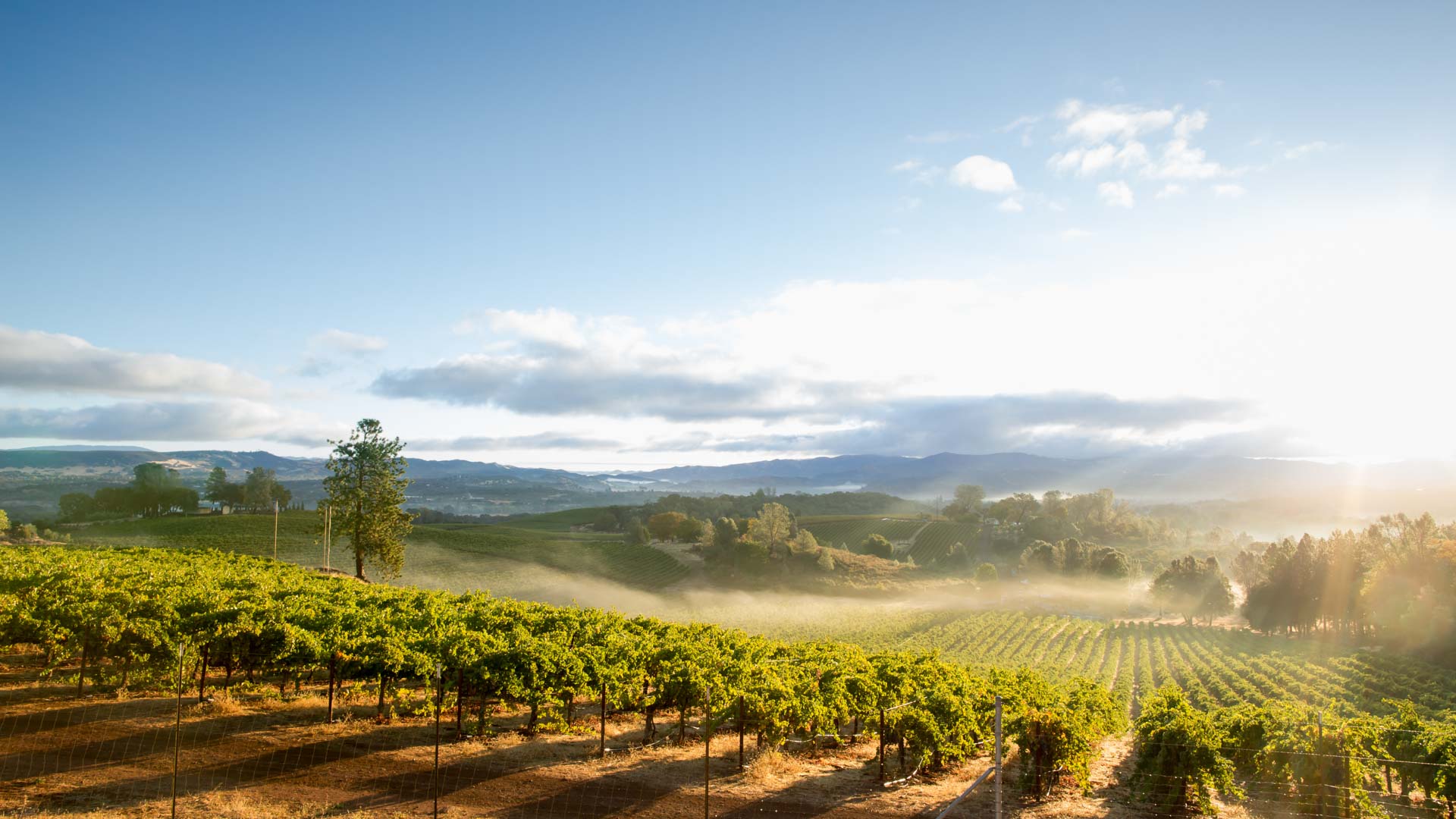California is a leader in sustainability, from its vineyards and wineries to its accommodations and activities, so it’s no surprise that Michelin has recognized the state’s restaurants for their eco-friendly ethos. In 2020, the culinary guide introduced the Michelin Green Star, an annual award for restaurants that set the standard for “green” practices. There are currently 359 restaurants worldwide with Green Star distinctions, including 11 in the United States. With nine recipients located in California, the Golden State leads the nation in Green Star awards—by a wide margin.
To earn a Green Star, a restaurant must combine culinary excellence with industry-leading environmental and ethical standards. For many recipients, this means focusing on local and seasonal ingredients, dealing directly with eco-conscious farmers and fishermen, and cultivating their own organic gardens. Green Star restaurants also consider their overall environmental footprint, food waste, recycling, and the well-being of their employees and communities.
“California has really been a leader in creating more sustainable practices in our restaurants, better relationships with local farmers, cooking seasonally, and reducing waste in our kitchens,” says Kyle Connaughton, chef and co-owner of SingleThread in Healdsburg, which holds a Green Star and three Michelin stars.
“What makes the Green Star so special,” adds co-owner Katina Connaughton, who heads the organic farm that produces most of SingleThread’s produce and herbs, “is that it recognizes the hard work of our farm team and their commitment to biodiversity and regenerative agriculture, as well as the strides the entire restaurant makes to approach our work with a sustainability mindset.”
Green Star recipient Matt Kammerer, chef at Michelin two-star Harbor House in Elk, believes that chefs and restaurants play an important role in the sustainability movement by inspiring consumers to adopt similar practices at home. Set on the Mendocino Coast, Harbor House sources many of its ingredients—including foraged mushrooms, seaweed, and other wild delicacies—from the surrounding area.
“Restaurants and hospitality have the ability to show their guests that eating locally and sustainably from your surroundings is the direction we need to go in as our food culture continues to evolve,” Kammerer says.
Read on to learn more about California’s nine Green Star restaurants.
Chi Spacca & Osteria Mozza, Los Angeles
Chef Nancy Silverton purchases ingredients from within 100 miles of her L.A. restaurants and prioritizes organic and sustainable products. Chi Spacca buys whole animals to reduce food waste, has a no-bottled-water policy, and strives to conserve energy and water. Osteria Mozza employs more than two dozen sustainability best practices, from low-flow kitchen faucets to requiring suppliers to use returnable packaging.
Atelier Crenn & Bar Crenn, San Francisco
Bleu Belle Farm in Sonoma County grows most of the restaurants’ produce, using earth-friendly biodynamic practices. In turn, Chef Dominique Crenn provides the farm with composted food scraps. In 2018, she removed meat from the menu at Atelier Crenn due to meat production’s environmental impact, then followed suit a year later at Bar Crenn.
Quince, San Francisco
A longtime proponent of using local, seasonal ingredients, Chef Michael Tusk partners with sustainability pioneer Peter Martinelli of Fresh Run Farm in Bolinas to source the restaurant’s organic produce. He also takes a no-waste approach in the kitchen, composting food scraps for Fresh Run and sourcing whole animals for his nose-to-tail menu.
Chez Panisse, Berkeley
Chef Alice Waters exclusively sources ingredients from within 50 miles of Chez Panisse, supporting farmers that embrace organic and regenerative practices. The restaurant operates with minimal landfill waste, and its grounds are Green Business certified—meaning it adheres to high standards for energy efficiency and water usage. Everything the restaurant uses is completely consumed, composted, or recycled. As a member of Zero Foodprint, Chez Panisse is a certified carbon-neutral business.
The French Laundry, Yountville
The French Laundry has been sourcing organic ingredients from its own vegetable garden and nearby farms since it opened in 1978, and Chef Thomas Keller has long worked to reduce the restaurant’s environmental footprint. In 2014, The French Laundry temporarily closed for a “green” transformation of the kitchen and grounds, resulting in a solar-powered, low-impact building designed to reduce waste.
SingleThread, Healdsburg
The restaurant’s own organic farm supplies SingleThread with produce, herbs, honey, eggs, and olive oil. Chef Kyle Connaughton sources everything else, from produce to lamb, from local organic farms that share the restaurant’s dedication to sustainable practices. SingleThread adheres to strict seafood sustainability protocols and supports local fisheries that are working to repair the habitat for wild abalone.
Harbor House Inn, Elk
Chef Matt Kammerer sources many of the restaurant’s ingredients from his immediate surroundings. (Even Harbor House’s plates, bowls, and steak knives are made by local artists.) Along with growing produce in the property’s onsite organic garden, the team seeks out sustainable seafood from local fisheries and forages for seaweed, wild mushrooms, and more. To ensure nothing is wasted, Kammerer buys and butchers whole animals.
